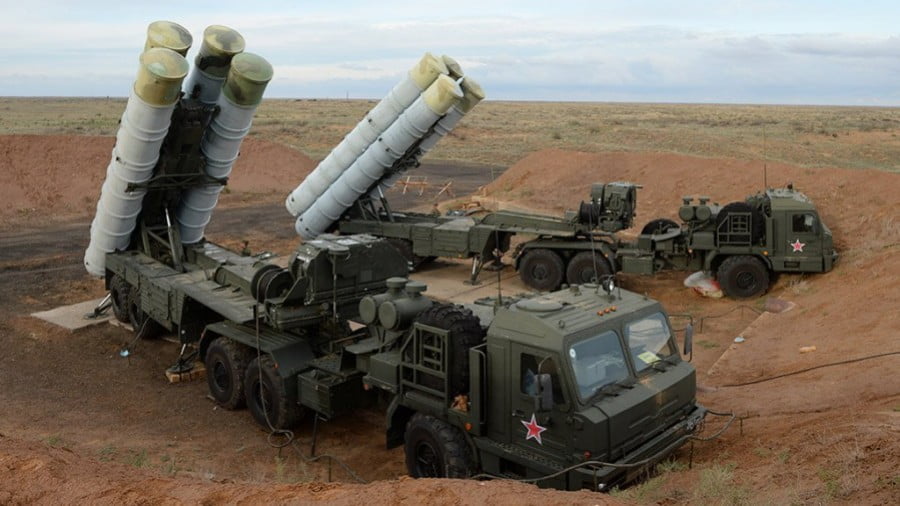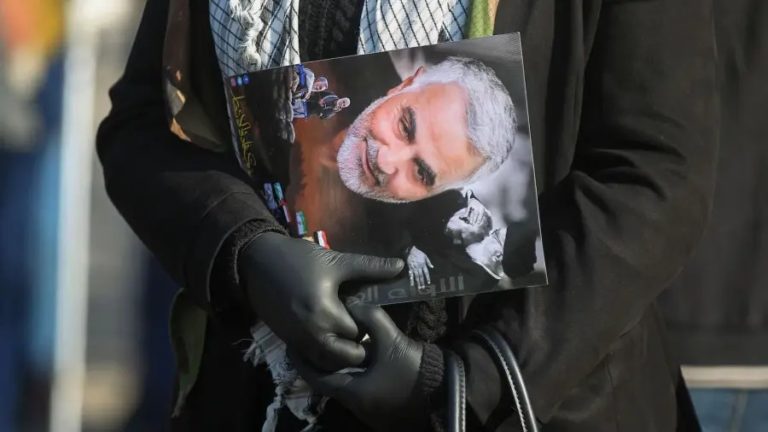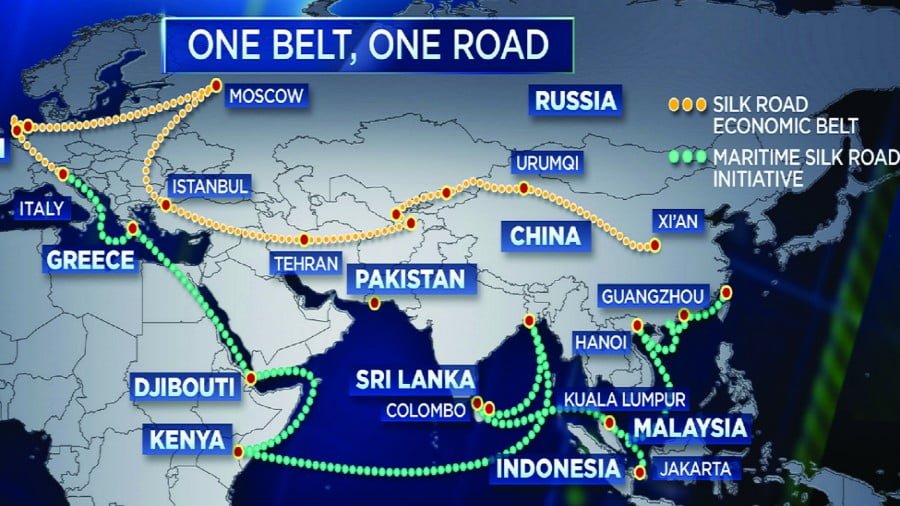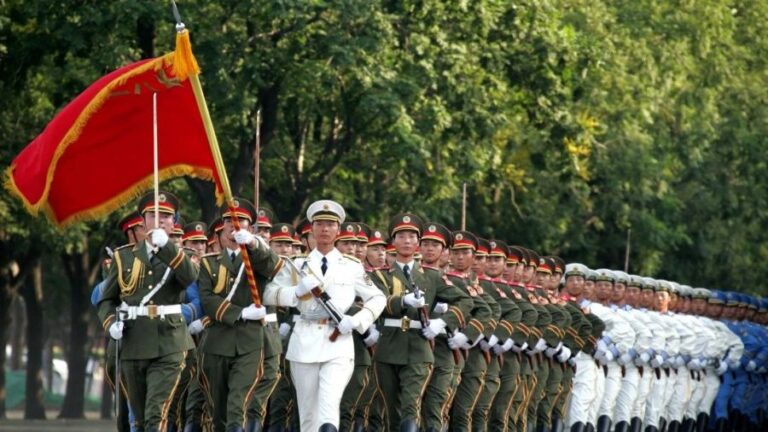China Should Buy More Russian S-400s and Sell Them to Pakistan
Russia’s relationship with Pakistan continues to improve, but the optics must improve rapidly
Of all three nuclear superpowers, Russia’s geopolitical relations are the most interwoven and therefore the most complex. Russia is a nation with good relations with Israel and Iran, Turkey and Syria, Saudi Arabia and Qatar, China and Vietnam, Serbia and Croatia as well as Egypt and Turkey. Russia’s ability to maintain positive relations between some of the world’s most intense geopolitical rivals is due to a combination of a highly professional diplomatic corps and Foreign Ministry, the attractiveness of Russian energy and security products which are priced more competitively than their US counterparts, as well as the fact that Russia has a proven record of acting as a reasonable mediator between declared enemies. For proof of this, one can simply read any recent remarks made by Turkish President Erdogan, Israeli Premier Netanyahu, Iranian President Rouhani and Syrian President Assad in the presence of Russian officials.
China too manages good relations with many of these rivals but with the major exceptions of India and Vietnam, two neighbouring states on either side of China whose rapprochement with Beijing continues to be a desired outcome rather than one that is imminent.
It is in this context that one must view the recent Russian sale of S-400 missile defence systems to its old Cold War friend India. Furthermore, as India is fast becoming a key American ally in Asia under the extremist BJP government of Narendra Modi, if there is any country being openly challenged by Russia’s recent arms deal with New Delhi, this country is the United States – certainly not Pakistan.
That being said, it is inevitable that a superpower that was not a partner to Pakistan during the Cold War selling highly advanced weapons to India in 2018 would be received with disappointment and even suspicion by patriotic Pakistanis. Even though the S-400s are defensive weapons, the optics still do not look good. This is the case even though neighbouring rivals Saudi Arabia and Qatar have also expressed mutual interest in S-400s at a time when Russia’s relations with both Doha and Riyadh continue to improve. That being said, while it is unlikely that the Saudi-Qatari spat with result in a war, let alone a major war, Pakistan and India have been at war with one another multiple times and likewise, unlike the aforementioned Arab states, both India and Pakistan have nuclear arsenals.
An elegant solution
While Russia continues to improve its relations with Pakistan, China was an ally from the time of Pakistan’s birth as a free nation and remains a strong all-weather partner. Therefore, as the first nation to purchase S-400s from Russia, China is in a unique position to buy new S-400s for its own protection while “re-selling” some existing units to Pakistan.
While technically there is little any nation can do about a second nation re-selling weapons produced in the first nation to a third nation, Russia clearly would not want to be left in the dark during such a would-be “re-sale” and nor should it. The fact that China has excellent relations with Russia therefore makes such a transaction possible without causing any disruption to the existing partnerships of the wider Asian space.
Here’s how the deal would work
Recently, Russian, Iranian, Chinese and Pakistani intelligence officials held a private meeting in Islamabad to discuss the security situation in the region with Afghanistan being the main focus of discussions. This demonstrates that it would be entirely feasible for the intelligence agencies and armed forces of Russia, China and Pakistan to privately coordinate such a “re-sell” wherein China would sell some of its “used” S-400s to Pakistan while purchasing other new units from Russia for use within China.
At this point, someone might ask when Russia should not just sell Pakistan the S-400s directly as if anything this would demonstrate that Moscow’s sale to New Delhi was not an anti-Pakistani provocation in any way. The answer to this is that using China as a would-be “authorised used S-400 dealer” would help draw Pakistan’s actual enemies out of the woodwork very effectively.
Let India say what it really thinks
While India clearly didn’t ask its Pakistani opponent what it thought before buying the S-400s, Indian media and the ruling BJP would be sure to try and score pre-election points by heaping scorn on Russia for selling S-400s to its hated neighbour. Depending on how much scorn is heaped on Russia and from what Indian sources, Moscow policy makers could get a more realistic idea of what post-Cold War India actually thinks about its old friend that it has already betrayed in more ways than one in the context of its close partnership with the United States that is anything but win-win in nature.
Confuse America’s sanctions strategy
The US has sent multiple mixed messages to India over whether it will sanction its comrade in the global campaign of Sinophobia over the fact that New Delhi just bought modern weapons from Russia – a country the US loathes but India clearly still has some measure of public fondness for. While US Defense Secretary James “Mad Dog” Mattis has suggested that India receive a waiver from the sanctions normally applied to partner (or rival) nations that purchase Russian weapons, Donald Trump has more recently indicated that he will not let India’s purchase of the S-400s go unpunished.
Geopolitical expert Andrew Korybko has explored both the sanctions scenario and the waiver scenario in recent pieces for Eurasia Future, as it relates to both India’s S-400 purchase and India’s claim that it will continue to buy Iranian energy after American mega-sanctions become active in November.
But while the US sends mixed signals to India over Russia and Iran, the US is sending less nuanced mixed signals to Pakistan. On the one hand, the US has cut off $225 million worth of monetary “aid” to Pakistan and proceeded to have Pakistan grey listed as a state which “harbours terrorism” before the so-called international community. While the Trump administration’s rhetoric towards Pakistan, its actions towards Pakistan and its related actions with India demonstrate a rapid decline in the always unfair and one-sided US “partnership” with Islamabad, the US would clearly rather bully Pakistan into “returning to America’s fold” rather than simply punish Pakistan for embracing geopolitical neutrality and partnerships that are win-win rather than win-lose.
Therefore, if both India and Pakistan were to receive Russian made S-400 weapons, would America sanction, India, Pakistan, both or neither? If the US were to sanction both, it would clearly draw Pakistan closer to both China and Russia while it would bring India closer back to its old Russian friend while possibly even encouraging a detente between India and China.
If the US were to sanction neither it would represent a short and possibly medium term hard power victory for Russia in south Asia and a soft power victory for China. This is the case because such a scenario would show that Russia can sell its weapons to both India and Pakistan and no one will do anything about it. It would be a soft power victory for China because it would demonstrate to India that because of Russia and China’s incredibly close partnership, India cannot succeed in its fantastical dream of reviving the Sino-Soviet split of the Cold War.
If the US were to only sanction Pakistan, it would prove to pro-US and anti-Russian Pakistanis (who are usually though not always the same individuals) that Russia is ultimately a skilled diplomatic partner in waiting while the US is an ex-“partner” at best or an ex-headache at worse. If on the other hand the US were to sanction India and not Pakistan, it would show both nuclear south Asian powers that the Cold War mentality in America is still alive and well and that US policy makers are either too stupid or too stubborn to understand the modern realities of partnerships in Asia.
Conclusion
While China re-selling S-400s to Pakistan may appear to be a heterodox strategy, it will help Pakistan to secure itself against anything India might have in mind by equalising the defensive playing field in the region. At the same time, such a strategy will help to lay bear what China, Russia, India, Pakistan and the US really think about each other and what they really want for and from each other. Such a geopolitical education in real time is truly priceless.







